#chernobyl (2019)
Text
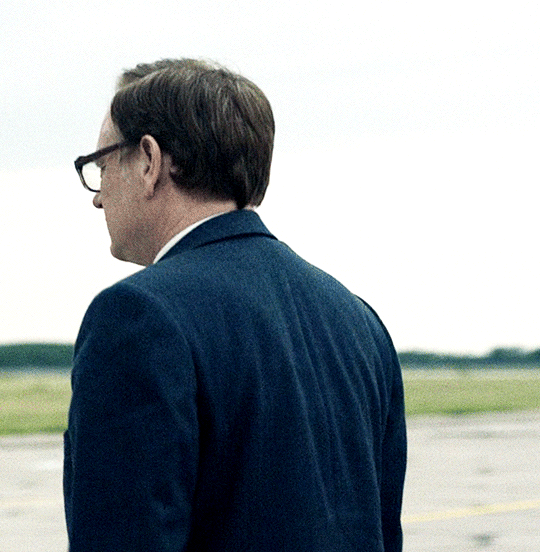


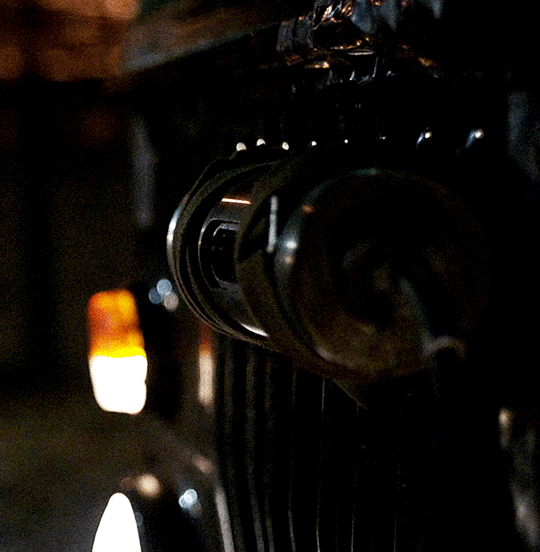


CHERNOBYL (2019)
1.02 | Please Remain Calm
#tv#chernobyl#hbo chernobyl#chernobyl 2019#tvedit#chernobyledit#hboedit#tvandfilm#userjack#perioddramaedit#tvarchive#cinemapix#userstream#smallscreensource#cinematv#gifs*#mine*#this set looks way better on mobile#compared to the last one
443 notes
·
View notes
Text

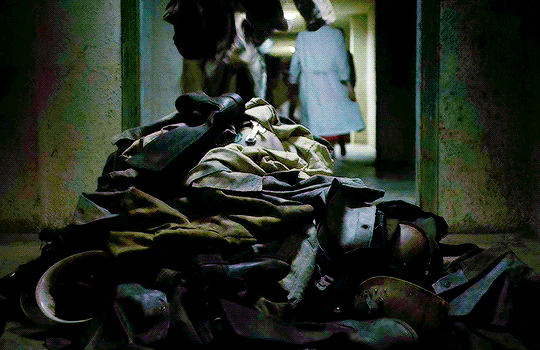

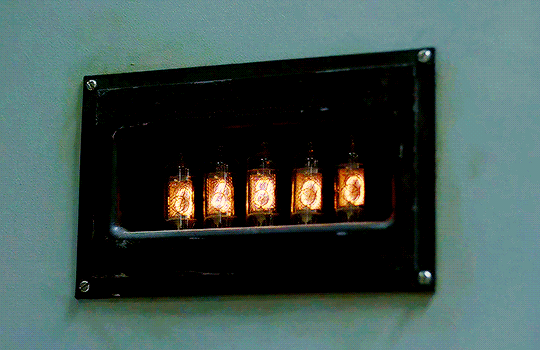
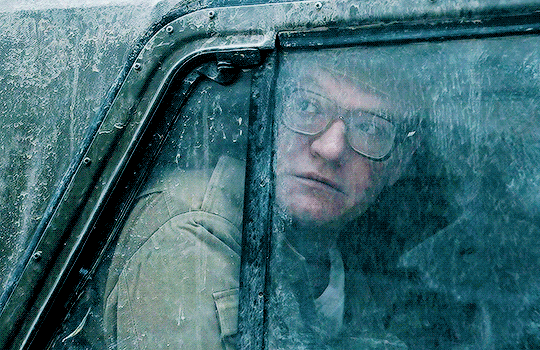

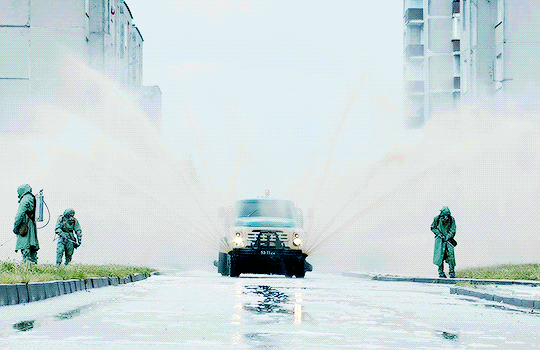
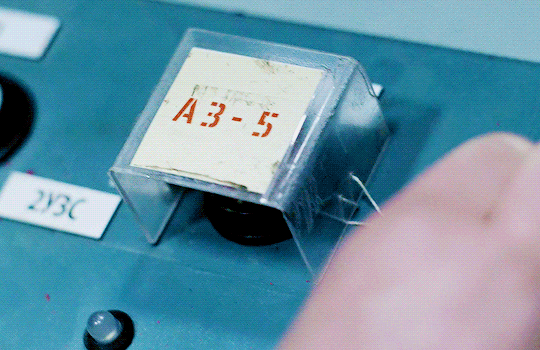

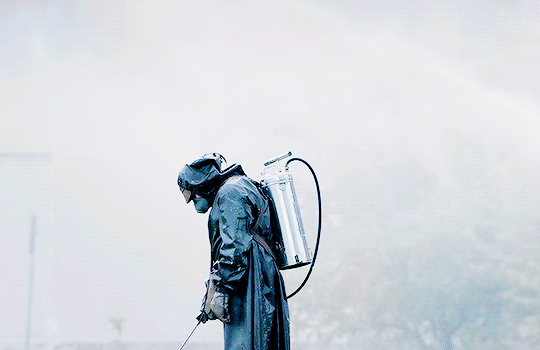
PERIOD DRAMA APPRECIATION WEEK 2023 | Day 2 (July 4th): Favorite Period Drama TV → Chernobyl (2019)
"Why worry about something that isn't going to happen?" That's perfect. They should put that on our money.
#chernobyl 2019#chernobyl hbo#chernobyledit#perioddramaweek2023#perioddramaedit#jared harris#paul ritter#S1E01 1:23:25#S1E05 Vichnaya Pamyat#S1E02 Please Remain Calm#S1E04 The Happiness of All Mankind#my edits
530 notes
·
View notes
Text

345 notes
·
View notes
Text
Ok I've promised this before... Chernobyl HBO retrospective
Well I mentioned before that I wanted to eventually delve into this, so here is my retrospective on the HBO Chernobyl show. Why it was my favorite work of art ever, why it is still irredeemable trash that the world would be better without due to inaccuracies and misleading claims, why most of the criticism of it completely misses why this was (or just says things that are downright unfair to it), and how it ruined my mental health.
If you ever see this show discussed on the internet, it’s usually a bunch of people praising it and calling it the best show ever, a person or two saying it’s just typical manipulative Hollywood tripe lying about history and science for propaganda/making things more dramatic, and the original people dogpiling said dissenter with downvotes. And… neither of these sides are really right, or at least the latter is very much misattributing the motives behind the problems with the show.
The thing is that, it’s clear from listening to the supplementary podcasts and discussions that Mazin was not trying to lie for clout, and was genuinely deeply thoughtful (unlike a lot of people making “based on a true story” works) about representing the truth, and about carefully considering before adding anything inaccurate into the story, and if he did he would always justify it with it being necessary to convey a greater truth within the limits of 5 hours of television, rather than for coolness or tropes or drama or making nuclear power look bad (the latter of which he is explicitly against). He made a clear attempt to read multiple sources rather than basing everything on one source and getting into trouble for that (Hamilton looking at you). The common criticism trope that gets leveled is that the show is hypocritical for being about the danger of lies and misinformation but peddling lies and misinformation itself, but he was fully aware for the potential for hypocrisy in the show’s premise and made the podcasts where he would give an honest breakdown of all of his decisions specifically to avoid such hypocrisy. And thus people who have listened to said podcasts are often the show’s loudest defenders, because of that uncommon thoughtfulness it shows making it seem very unfair to lump it in with Hollywood’s typical crass and mercenary manipulation of truth. He even explicitly went with the least dramatic story whenever there was a contradiction between sources.
Except the problem is that all of that care… wasn’t enough. Like wasn’t even nearly enough. Not only the things he admits to changing but half of the things he cites as being “ok this one is shocking but real” actually still turned out not to be true. In some ways it’s not a surprise why. He mentions reading 20 sources that said the three people who went into the reactor to drain the water died before reading one correct report that they survived, and it’s not hard to believe that these other cases were ones where he never found that one correct one. My read on it is that the problem is that, as sincere as he was, he is not a historian with the ability to not just read a huge number of sources but locate the most important and reliable ones and prioritize them over the less so.
But in the end, it doesn’t really matter, does it? From a death of the author perspective – if you are sincere and careful but the end result is completely indistinguishable for manipulative tripe and/or propaganda, who cares what your intentions are, it’s still trash! All that knowing the motivations behind it does is make you mad, because rather than being something you can dismiss, it’s something where the creator made an effort to know the truth they were based on the story on, played their hand brilliantly at, within the constraints of the format and fact, making a powerful and haunting story, a masterpiece, and none of it matters in the end anyway. Which brings me into why it was executed so brilliantly…
Besides being very well done, Chernobyl captivated me because it perfectly appealed to things I had always wanted to see but never really got to. I had always dreamed of a reinvention of the disaster movie genre that could touch at the heart of the tragedy and horror and awe of disaster for the ones living in it and dying from it; not merely a cheap excuse to have fun thrills at the death of nameless victims or (as seems to be the fashion everyone is begging for in disaster/apocalyptic types of things now) narratively bypass that people died, that something happened that cannot be reversed, altogether to focus on the hopeful fantasy of being a survivor. And this seemed exactly what I was looking for. And then there was the amazing way it incorporated complex scientific explanations in its finale, something that excited me so much as a Chemistry major in college at the time who really wanted to devote myself to science. At last, a work that didn’t treat its audience as dumb, that incorporated an intricate and fascinating explanation (with an actual nuclear physicist hired as a consultant) in a way that added to the story rather than ever dragging it! Nothing has ever really compared to that; any time I see a movie where science is an aspect of the plot I find myself disappointed in comparison with how there is no real science in it. Come on, I want to see the real fascinating complexities of the world explained with the excitement people devote to their fictional magic systems. This show had spoiled me forever on that to the point where I was just watching the Oppenheimer movie complaining that they never actually explain the science at all, let alone in an amazing and riveting way. The atmosphere was well-executed and uniquely executed, and it was like I was there in the long days, the deserted nature, the machinery and the dread of the radiation that permeated everything.
And then the characters… wow, they were well done, I had never been this invested in characters that had such a short time to be built up, and I have very rarely been this invested in characters period. Legasov was amazing, I will talk more about him later, and Shcherbina was, well… my ultimate blorbo from my shows who I thought of all the time and, if I was on Tumblr then, probably would have been posting analysis posts of nonstop. The way he was the harsh and practical bureaucrat and provider of materials but subtly, in a way I picked up before with his genuine excitement over things like the moon rovers but had big payoff in his final scene, a sort of lapsed idealist who sometimes betrayed a genuine excitement for making things work. Someone for with all his bluster of having power, was fundamentally helpless, a cog in the system who knew it and tried to shut and deny everything away like everyone in the show. And the beautiful irony of how only when he’s thrust away from normal life and into this twisted, haunting, as some reviewers had said cosmic-horror like/small scale apocalyptic realm where the life he had built and future he had hoped for is forfeit, where he is nothing more than a ghost and he’s walked into a trap from which there is no return, but within this realm has power that he can grab onto and fight for something with, then he’s able to live up the idea of the benevolent authority figure he had tried to in the past and gotten crushed for. That’s when he’s able to show all of his cleverness and drive and an honesty that the supposedly more “innocent” Legasov struggles with, a cold and frightening honesty that both sees the ridiculousness of Soviet ideals of sacrifice that got them into this situation in the first place and knows that is still exactly what is necessary in this time and place and is willing to follow it to the bitter end, enacting exactly the heroic ideal he had once thought he could be. One criticism I have seen of this show is that it romanticizes the ideals of sacrifice too much to be anything but a lukewarm criticism of the system it purports to criticize, but that part, particularly in relation to this character, was really impactful for me. Not an easy and unquestioned lauding of those values, not solely a detached cynicism either, but a knowledge it was cruel and ironic and partly the fault of these ideals in the first place that it had come to this, that there was (as Mazin said in the podcast) no beautiful realm to sacrifice oneself for and just more bitterness, but there was still something noble and meaningful in what now had to be done, and in a way that made it hit harder than a more straightforward story.
And that wasn’t the only case I noticed where a common criticism seemed to “miss the point”, there are two other big examples of that. One is the argument that the show distorts history by making Dyatlov and co. into the sole villains who were individually responsible for everything, ignoring the reality of the government and system as a whole being responsible. This seems to betray a lack of comprehension of a lot that was not only implied, but sometimes outright stated in the text. The starting framing device sets up the explicit expectation that Dyatlov did bad things and isn’t going to be a likable character, but he’s still fundamentally a scapegoat whose individual failings are used to obscure the greater problems within the whole system, and the finale follows up on that. Using the explicit framing device of Legasov starting off by telling the part of the story that is true but not the whole truth, only the part his audience wants to here because it focuses on the failings of a few individual people, only to go off-script at the end and reveal the problems go far deeper. The same goes for another big criticism I’ve seen, that the show lacks understanding of the psychology and experience of people living under an oppressive government for how Legasov somehow remains innocent and sheltered and just shocked that people would lie like that. To me it seemed pretty clear that said character was portrayed brilliantly as someone who, by nature of his high rank in such a system, has to know the politics and make cynical moves and lies all the time just by virtue of existing there, but keeps that part of him as an instinct rather than something he consciously makes part of his identity so his self-concept can be one of nobly truth-seeking innocence. He can’t do politics when he tries to to it “consciously”, and refers to himself as someone who must not understand how horrible people can be because he’s so sheltered, but when he needs to get people to die for his cause his first instinct is lies and bribes, and the more we know about him the more it becomes clear that he has done plenty of bad, cynical moves to keep his position of power and esteem and avoid the horrible consequences that would come with defying those with greater power, it’s just that he does it on autopilot and separates it from the part of his identity that he acknowledges and gives him internal moral justification for existing. His character arc is about being forced to confront this contradiction in himself in the most horrific of circumstances and actually, hesitantly, very humanly, become what he believed himself to be, even if it destroys him, and I think that’s really brilliant character writing!
Now, a lot of the sources of criticism are from people who are knowledgeable about history or lived in the Soviet Union themselves, and so, if they had acknowledged these subtleties but said the show was not realistic or honest in these ways in spite of them, I would concede they knew more than I do about these topics and the criticisms were justified. Such as if they had said “Yes, I know the show is trying to point out that someone who is genuinely unlikeable and did bad things can still be a cynically used scapegoat to hide systemic problems, but the real person wasn’t that unlikeable and bad in the first place” or “Yes, I know there is a very specific reason with regards to the framing device that the criticism of the government gets saved for the end of the last episode but giving it so little screen time still undersold how that was the main point”, or “Yes, I know Legasov’s character was significantly more nuanced than an innocent noble truth-teller but it still didn’t do enough to read as how a real person would act in the Soviet Union”, but it never seems to be that, it always seems to be the critics seeing the show as playing these tropes straight, unsubtly and unironically, which just seems to be bad comprehension to me.
So I’m just going to finish it off with why I care so much, which is the impact the show had on me. At the time it came out, I was going through a horrible time mentally, having constant obsessive thoughts devaluing anything I cared about or found meaning about in life, and I was just for the first time starting to get to a more stable point where I could actually find value in life. At the time I was in college doing an internship in a lab I really loved. And I know people will see me as a freak for finding any comfort in a show infamous for being a grueling an depressing exploration of a real-life disaster, but it made me feel real emotions for the first time in a while. Sadness and haunting awe and real suspense and fear that no supernatural horror thing could ever dream of striking in me (the roof scene was just wow…). But also a kind of bitter hope and sense of purpose that I alluded to earlier. What has always compelled me most in media, in terms of making me feel enthusiastic just to live, is not the things that get labeled as “optimistic tm”, but the things that throw you against a wall and twist everything and then there is still a hope and value in it that exists purely, beyond words or any pretensions.
And the more I looked into the show and the various criticisms of it, the more I began to suspect that none of the value, none of the thoughts and feelings I had, even mattered. It didn’t matter the creator’s honesty and scruples and good intentions, or how it was just about the perfect work of art that I loved more than anything. Because fundamentally this was a story about truth, one in which the horror and meaning of it relied on it being real, and if enough of the plot points and key emotional beats weren’t really real, then that’s an irreparably failed work, in fact one that can do harm in the real world, and nothing else it does right even matters. Sure the sequence where the danger to all of Europe of a second explosion is outlined is an immensely well-crafted scene in an immensely well-crafted episode, and it made me feel more strongly than anything had made me feel in perhaps two years, but it didn’t really happen so the whole thing is a farce and I’m wrong to feel that way. Mazin believed it was real, he clearly got it from real sources due to people believing at the time and some sources still perpetuating it rather than making it up for the sake of drama, but accidental manipulation is still manipulation. I’m still not an expert so I may be wrong on this, but one can easily read both the supposed drama and the supposed meaningful actions, actions that mattered, that appealed to me as someone who wanted to find a purpose as a scientist, as a farce rather than a tragedy; the drama was all from people at the time thinking the situation was worse than it was (i.e in real life, they overestimated the likely deaths by a factor of 10 at the time), and all the actions that seemed to be meaningful were done on so little knowledge that they didn’t really make a difference. Probably Legasov saying that Shcherbina’s actions mattered in the end despite everything would be laughable in light of what really happened (I don’t know this for sure and this is just the sense I get from limited information, but I wouldn’t be surprised…) And really at the time, I had had enough of farces. Sometimes it seems like that’s all life was, and drama and tragedy would at least have some kind of meaning. I had gone so long obsessively punishing myself for liking and valuing anything. The more passionately I cared the more greatly I would punish myself, arguing that the flaws in whatever I cared for not only demanded a more nuanced view but completely erased anything good or valuable in whatever it was, making it objectively wrong to care. I would do this for anything from my favorite books to life itself. And the more I realized that my obsessive thoughts on this show, which I felt more intensely about than anything, were actually objectively right, that it really was irredeemable and none of the things it did right even mattered, the easier it was to believe that the same was true about all those other thoughts. I feel like, more than anything, this show ruined what would have been my recovery from my years of depression and made me like that for more years to come. And the worst thing was that I didn’t want to tell anyone about this, I felt horribly embarrassed that my view of the world could so depend on something so frivolous as a TV show, rather than be determined solely by grand philosophical questions about life itself. Honestly being on Tumblr has helped me be more comfortable with the part of me that can get very focused on fiction in this way, for how everyone else is willing to be that passionate, but at the time I didn’t have that.
In conclusion I would just want to note that I know it seems to be the fashion nowadays to say “well who cares about historical fiction/things based on a true story being accurate, it’s actually better the more ridiculous and disconnected from the truth it is and accuracy is just laziness”. But I’ve never felt that way, I have always felt there is value in telling a story with solemnity and compassion about true events, with the fictionalization allowing one to endow it with a technique and most of all humanity that can still be preserved without deviating from the important details. This has always been my personal white whale, because most creators don’t seem to care a bit about being faithful to the truth, or as much as they can within the constraints of the format, or they think the truth is boring (when actually the made-up details are inevitably far more cliché, weaker, and well, boring than the fascinating truth is). And then, when you have a one-in-a-million case where the creator is actually disciplined and honest, people are still idiots and probably I should give up on hoping anyone who isn’t a trained historian (and scientist) themselves will be able to conduct their research so as to not make so many mistakes it completely ruins the whole project. But still, they had the resources of a TV show, they actually hired experts, it is still mind-boggling how something done with such good intentions and care could go so wrong? Probably I will never be satisfied. But I will still wish for something that as amazingly tackles real events as this show does with the events as its creator believed were real, as something that in a different world I would have easily named as my favorite work of art ever. In the end, though, that’s probably another false hope.
17 notes
·
View notes
Text
[Aphrodite's Child - End Of The World]
Hace un rato vi Chernobyl de nuevo y me acordé de mis Papás Soviéticos 😼💖.
#chernobyl hbo#chernobyl 2019#valery legasov#boris shcherbina#valoris#stellan skarsgard#jared harris
24 notes
·
View notes
Text
The Terror and some really convoluted fanfic ideas:
1) It's March, and for some reason Franklin starts to get more and more suspicious of Fitzjames, despite being almost a father figure to him. And he's right.
2) Crozier is being, well... himself. And Hickey risks himself to save others, even though he wasn't on duty, and dies terrible death. Also he's married and that's genuinely very sweet
3) Hickey is still involved in some torrid love affairs, also has serious problems with substance abuse and, consequently, with his family. Besides, he's a former "gifted child" and a complete mess. Edit: Tozer is here too and he's kinda in love(?) with Hickey.
#the terror#john franklin#james fitzjames#francis crozier#cornelius hickey#rome 2005#chernobyl 2019#to walk invisible
12 notes
·
View notes
Text
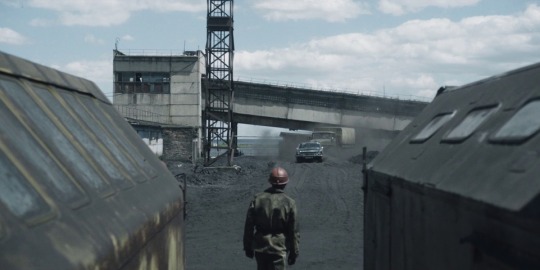


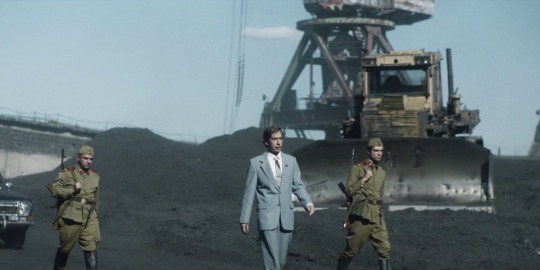



Chernobyl (2019)
Episode 3: "Open Wide, O Earth"
13 notes
·
View notes
Text

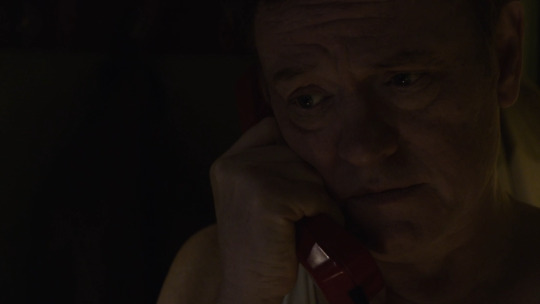
The power of makeup!
17 notes
·
View notes
Text
I really liked the camera angles in episode 5 of Chernobyl because to me it looked like two things:
1) obviously Valery was nervous, so it kinda resembled his shakiness
2) it was tipping to the sides which reminded me of scales, because he had to choose right then which side to take - whether he was going to prioritise his own life or the potential lives of millions
7 notes
·
View notes
Photo

image study of a screenshot from Chernobyl (2019)
29 notes
·
View notes
Text



Chernobyl (2019) - Episode 1
What is the cost of lies?
10 notes
·
View notes
Text


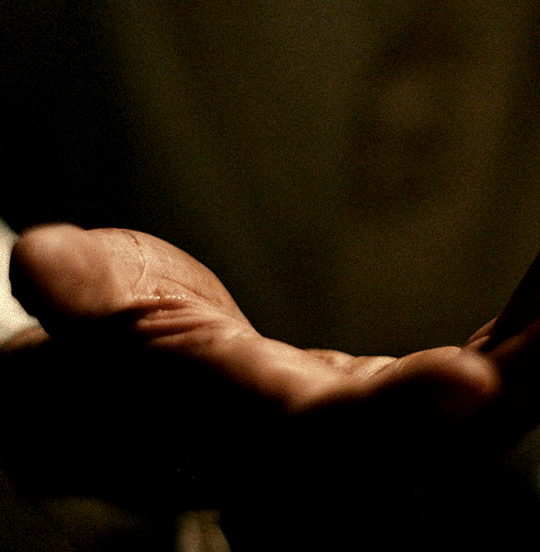
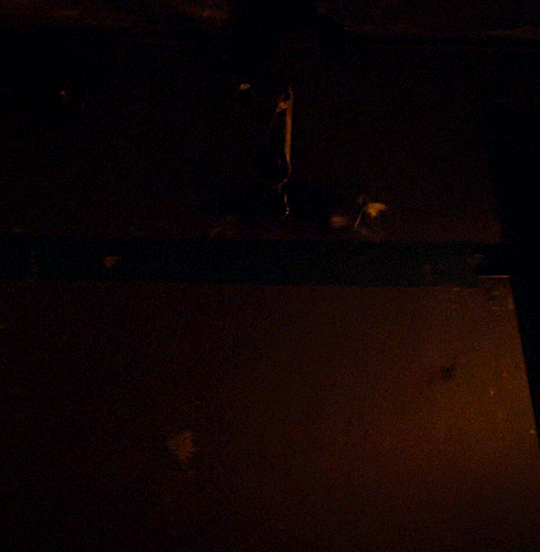
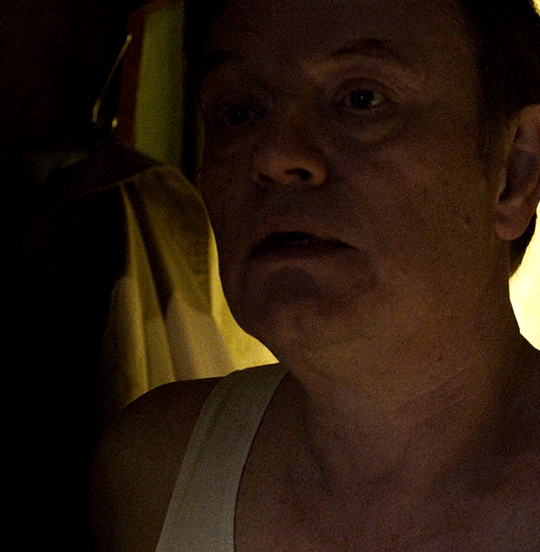
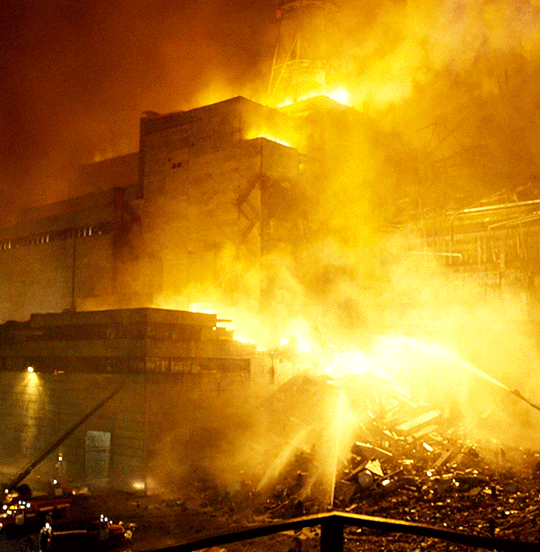
CHERNOBYL (2019)
1.01 | 1:23:45
#tv#chernobyl#hbo chernobyl#chernobyl 2019#chernobyledit#tvedit#tvandfilm#hboedit#userstream#userjack#tvarchive#cinemapix#cinematv#gifs*#mine*#recently rewatched this masterpiece
169 notes
·
View notes
Text

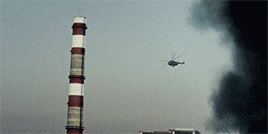
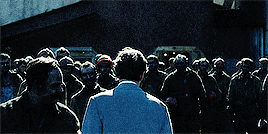
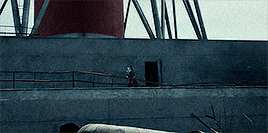
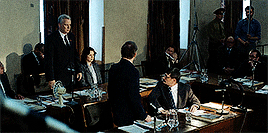

"We live in a country where children have to die to save their mothers. To hell with your deal. And to hell with your lives. Someone has to start telling the truth."
CHERNOBYL (2019) created by Craig Mazin
#chernobyl#chernobyl 2019#chernobyl hbo#craig mazin#hbo#gifs#gif set#gif edit#tv#tv gifs#tv shows#tv edit
3 notes
·
View notes
Text
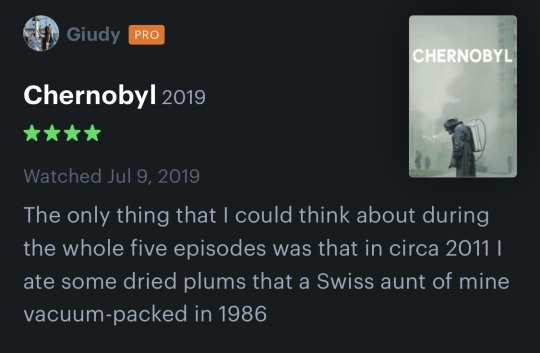
66 notes
·
View notes
Text
do you think stellan skarsgård and jared harris explored each others bodies
3 notes
·
View notes
Text
me: I wonder if there's Chernobyl(2019) fanfic
me on Ao3:
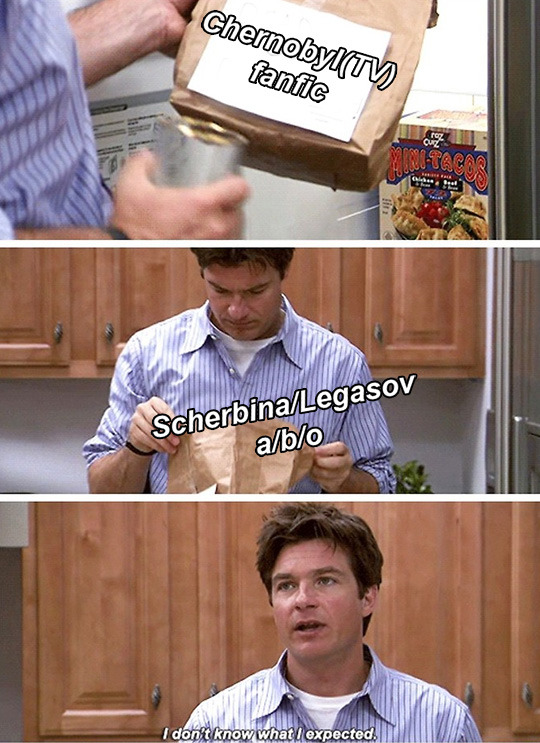
#asked and answered#Chernobyl 2019#Chernobyl (TV)#Not risking tagging this 'Chernobyl' alone lol#dead dove do not eat#Andy do not google this lol#just don’t worry about it
24 notes
·
View notes